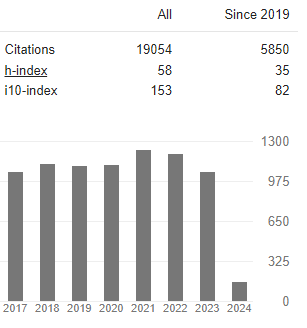Drug-Related Problems and associated factors among hospitalized pediatric patients at the University of Gondar Comprehensive and Specialized Hospital
Abstract
Atalay Amsalu, Adhanom Gebreegziabher Baraki, Esileman Abdela Muche
Introduction: Drug-related problem is any event involving drug therapy that interferes with a patient’s desired clin- ical outcome. It has been pointed out that hospitalized pediatric patients are particularly prone to drug-related problems. Thus, this study aimed to assess drug-related problems and associated factors among patients admitted to the pediatric ward of the University of Gondar Comprehensive and Specialized Hospital, Ethiopia: a cross-sectional study.
Methods: A hospital-based cross-sectional study was conducted among pediatric patients admitted to the University of Gondar Comprehensive and Specialized Hospital from May 1, to July 30, 2021. A Simple random sampling tech- nique was employed to select study participants. Odds ratio (OR) with 95% confidence interval was computed for each variable for the corresponding P-value to see the strength of association. Those variables which have a P-value of < 0.25 in Bivariable analysis were entered in Multivariable analysis to determine factors associated with drug related problems.
Results: A total of 180 drug-related problems were identified in 145 participants with an overall prevalence of 40.2% [95% CI (35.5- 45.4)]. Dose too low (35.56%), needs additional drug (28.89%) and dose too high (21%) were the commonest type of drug-related problems identified. The most important interventions made were dose adjustment (52%) and the addition of drugs (30%). The presence of comorbidity [AOR = 3.32, 95% CI (1.88-5.88)], polypharma- cy [AOR = 4.22, 95% CI (2.21-8.10)], and more than 6 days stay in the hospital [AOR =7.59, 95% CI (3.76-15.33)] were independent predictors for the occurrence of drug-related problems.
Conclusion: This study showed that drug-related problems were common among hospitalized pediatrics at the Uni- versity of Gondar Comprehensive and Specialized Hospital. The presence of comorbidity, polypharmacy and pro- longed hospital stay were predictors of drug-related problems. Therefore, to prevent these problems, health care providers have to work in collaboration with clinical pharmacists and give due attention to those patients with co- morbidity, polypharmacy and patients who stayed longer days in the hospital.





